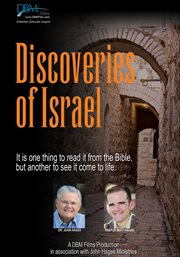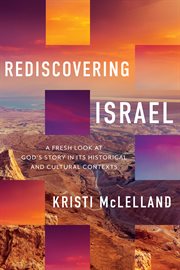Review by New York Times Review
IN "HUNGER OF MEMORY," the 1982 book that made him one of the most prominent Hispanic essayists in America, Richard Rodriguez wrote: "I wanted to forget that I had a body because I had a brown body." In "Darling," his new essay collection, he claims this body in all its difficulties. "Flesh is a complicated medium for grace," he writes, exploring the importance of physical bodies in a digital era, the importance of brownness ("Brown has always been the sum of our breathing and eating and moving about") as well as the importance of complication itself - the possibilities embedded in resistance, those experiences of refusal that shape our intimacies and our yearnings. "Darling" is both more and less than a "spiritual autobiography," which is how it has been marketed. It doesn't offer a continuous personal narrative of spiritual development, but its inquiries range much further than personal experience, exploring hospice care in Las Vegas and drag queen nuns in San Francisco; the crises of Mother Teresa and the emptiness that "clings" to Jerusalem shopkeepers, "mermen of green-lit grottoes piled with cheap treasure." Perhaps the book is best framed in terms of Rodriguez's own definition of the essay as the "biography of an idea." If "Darling" is the biography of an idea, this idea is the possibility that deprivation is useful: that barren landscapes offer subtler kinds of fertility, that occupying certain social margins might yield intimacies that wouldn't be possible otherwise. "The desert creates lovers," Rodriguez writes, telling the story of a saint who lived in craving: "St. Sabas desired the taste of an apple. The craving was sweeter to him than the thought of God. From that moment Sabas forswore apples. The desire for apples was the taste of God." "Darling" links its illumination of the "desert God" of Judaism, Christianity and Islam - a divinity that "demands acknowledgment within emptiness" - to a more personal history: the ways Rodriguez has resisted, and felt himself resisted by, the Roman Catholic Church. The book is anchored by a catechism that appears near the middle of its title essay: "Q: Why do I stay in the Catholic Church? "A: I stay in the church because the church is more than its ignorance; the church gives me more than it denies me. I stay in the church because it is mine." This search for reconciliation with the church brings Rodriguez to another of the guiding themes of "Darling": the commonalities between gay men and straight women, the overlap between their respective struggles. "I cannot imagine my freedom as a homosexual man without women in veils," he writes. "Women in red Chanel. Women in flannel nightgowns. Women in their mirrors." Rodriguez is interested in what resists our typical taxonomies, our standard systems of emotional or social order. The title essay recalls a conversation with a friend - a divorced straight woman - and searches for a term for their undefinable intimacy. The desert creates lovers, and "darling" is a term of endearment endemic to this kin, a love shaped by craving. "Darling" is less the biography of any single idea - or an account of any single spiritual journey - and more the biography of many intersecting ideas: the relationship between gay rights and women's rights; the relationship between unforgiving landscapes and enduring faith, between cities and their scribes; between a homosexual man and his church. These ideas play out across a wide variety of historical theaters: the tangled legacy of Cesar Chavez, the lost heyday of city newspapers - once "the weight of the world, carried by boys" - the relentless glow of the Vegas strip and the endless traffic jams on California freeways, that Sigalert proof that too many folks showed up for the same dream. Sometimes these various strands of inquiry resonate in unexpected ways, while at other times they feel cobbled together for the sake of a book-length project, their points of connection forced. But the book is remarkably and consistently willing to confess its fallibilities. It is full of folks who don't like what Rodriguez is up to or how he's up to it: a Greek Orthodox monk who questions his umbrella use of the phrase "desert religions," a woman who tells him he cannot scribble in his notebook at the Western Wall. People challenge Rodriguez's ideas and his methods; they fail to share his anxieties. The writer E. M. Cioran once made an eloquent case for internal argument - "The reaction against your own thought in itself lends life to thought" - and Rodriguez has effectively outsourced this internal debate, inviting others to vocalize the ways in which he wants to resist his own thinking. This willingness to embrace disagreement is yet another tribute to the possibilities of resistance. Arguments resist resolution just as the desert resists comfort; refusal doesn't breed estrangement but its opposite. Which is the search and lesson of this uneasily coherent collection: Wanting isn't lack but divine taste, the ghost and promise of apples; difficulty and hunger aren't the absence of connection but its bedfellows. LESLIE JAMISON'S essay collection, "The Empathy Exams," will be published in April.
Copyright (c) The New York Times Company [November 24, 2013]
Review by Booklist Review
*Starred Review* Paradox has always been at the heart of Rodriguez's brilliant personal essays, whether he was pondering, in Hunger of Memory (1982), the conflict between public and private selves; or defining, in Days of Obligation (1992), the split in his multicultural soul between his American faith in the future and his Mexican sense of the tragic past; or dissecting, in Brown (2002), the incendiary topic of race in America, in hopes of undermining the notion of race of America. In Brown, Rodriguez described himself as a Queer Catholic Indian Spaniard in a temperate Chinese city in a fading blond state in a post-Protestant nation. Now he digs still deeper into all those contradictions, examining his continuing belief in God and in the Catholic Church in the context of his life as a gay man in the early years of the twenty-first century, years, he says, that have been defined by religious extremism, rising public atheism, and what he calls digital distraction. And, yet, in the wake of September 11, Rodriguez found himself searching for commonality rather than difference between the religions of the desert and traveling to Jerusalem, the corrupt model of the eventual City of God, to find in the uninhabitability of the desert the shared heritage that leads Jews, Christians, and Muslims to seek another place, a green paradise. Rodriguez continues to find meaning in both the desert and the idea of paradise, and while his wide-ranging, erudite, passionate, and thought-provoking essays range over a wealth of seemingly disparate topics (gay marriage, Las Vegas, women, California, newspapers, technology), they all reflect his remarkable ability to penetrate the contradictions of our lives, reveling in them as much as understanding them. We gather, he says of his congregation, in belief of one big thing: that we matter, somehow. --Ott, Bill Copyright 2010 Booklist
From Booklist, Copyright (c) American Library Association. Used with permission.
Review by Publisher's Weekly Review
Rodriguez (Hunger of Memory) wrote so many well-received essays on the American religious climate after 9/11, often in the context of his own struggle in faith, that he turned them into a book-length narrative about his Roman Catholic formation during the past decade. His pilgrimage begins with "the realization that the God I worship is... the same desert God the terrorists prayed [to]," meanders through ruminations on "small wounds" in a meditation that involves Lance Armstrong and Sheryl Crow, and comes to a slow finish with a smile from Christopher Hitchens and a brief tribute to Mother Teresa. Much like his writing, Rodriguez has been all over the place, traveling, thinking, observing. By the end of his book, he leaves the reader feeling like it all fits together, as if all his essays give "a sense-no, not a sense, a reason-why everyone matters." And more importantly, Rodriguez doesn't beat this discovery over the reader's head but unpacks it gently, over the course of years, in seemingly disjointed stories that explain one writer's journey to a God of many. Agent: Georges Borchardt, Georges Borchardt Literary Agency. (Oct.) (c) Copyright PWxyz, LLC. All rights reserved.
(c) Copyright PWxyz, LLC. All rights reserved
Review by Library Journal Review
Rodriguez (editor, Pacific News Svc.) has long been something of a darling among readers for his memoirs Hunger of Memory and Days of Obligation, books that touch with unusual eloquence on his rich experience of his Mexican heritage, his sexuality, and his negotiations with politics and culture. This latest work, stemming from a piece he wrote for Harper's in 2008, is about his difficult confrontation with both God and the experience of emptiness; Lance Armstrong, Mother Teresa, and others make appearances as well. VERDICT Engaging and readable, this highly personal and candid discovery of the fullness of God in the silence of life's deserts may not offer anything new to spiritual seekers but will delight Rodriguez's fans. (c) Copyright 2013. Library Journals LLC, a wholly owned subsidiary of Media Source, Inc. No redistribution permitted.
(c) Copyright Library Journals LLC, a wholly owned subsidiary of Media Source, Inc. No redistribution permitted.
Review by Kirkus Book Review
An acclaimed gay intellectual and journalist's musings on the state of and interrelationship among Christianity, Judaism and Islam in the post-9/11 digital age. In this collection of essays, Rodriguez stylishly delves into the meaning of life, death, sexuality and the printed word in the 21st century by examining his own Christian faith. The events of 9/11 awakened him to the fact that the God he worshipped as a Catholic was "the same desert God [to which] the terrorists prayed." He went to Jerusalem to experience the "ecology" of the place that gave rise to not only Christianity, but also Judaism and Islam. In the emptiness of the desert, the printed word came to have sacred status for all three religions. What partially distinguished them were notions of paradise. "For Jews," he writes, "Eden was pre-desert [and] [f]or Christians and Muslims, paradise[was] post-desert." Rodriguez transforms his insights into lenses through which he views not only himself and the gay community to which he belongs, but also American culture. A friend's Easter Sunday death from AIDS in the Las Vegas desert becomes an occasion to ponder the campy neon paradise the city represents. A beloved female friend he refers to only as "Darling" becomes the focal point for witty meditations on how Rodriguez's own place as a homosexual in both the church and society depends on female empowerment, or lack thereof. The death of newspapers becomes a way for the author to reflect on the rise of technology. In this new "enlarging, unstable [and] ethereal" world, the former weightiness of words has been replaced by a disturbing relativism. Like newspapers, sacred texts such as the Bible, Torah and Quran become little more than objects stripped of meaning. With compassion and profundity of vision, Rodriguez offers a compelling view of modern spirituality that is as multifaceted as it is provocative.]] Copyright Kirkus Reviews, used with permission.
Copyright (c) Kirkus Reviews, used with permission.


